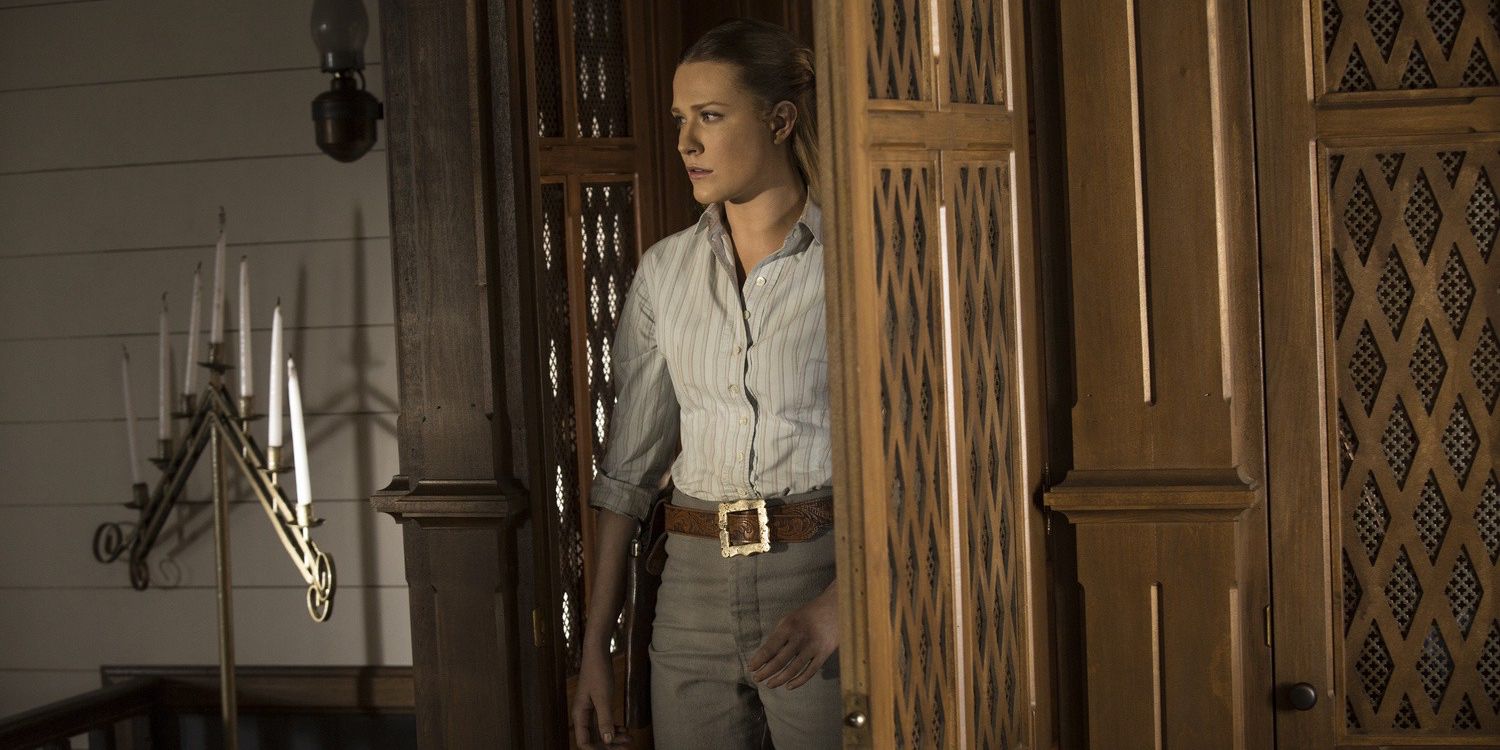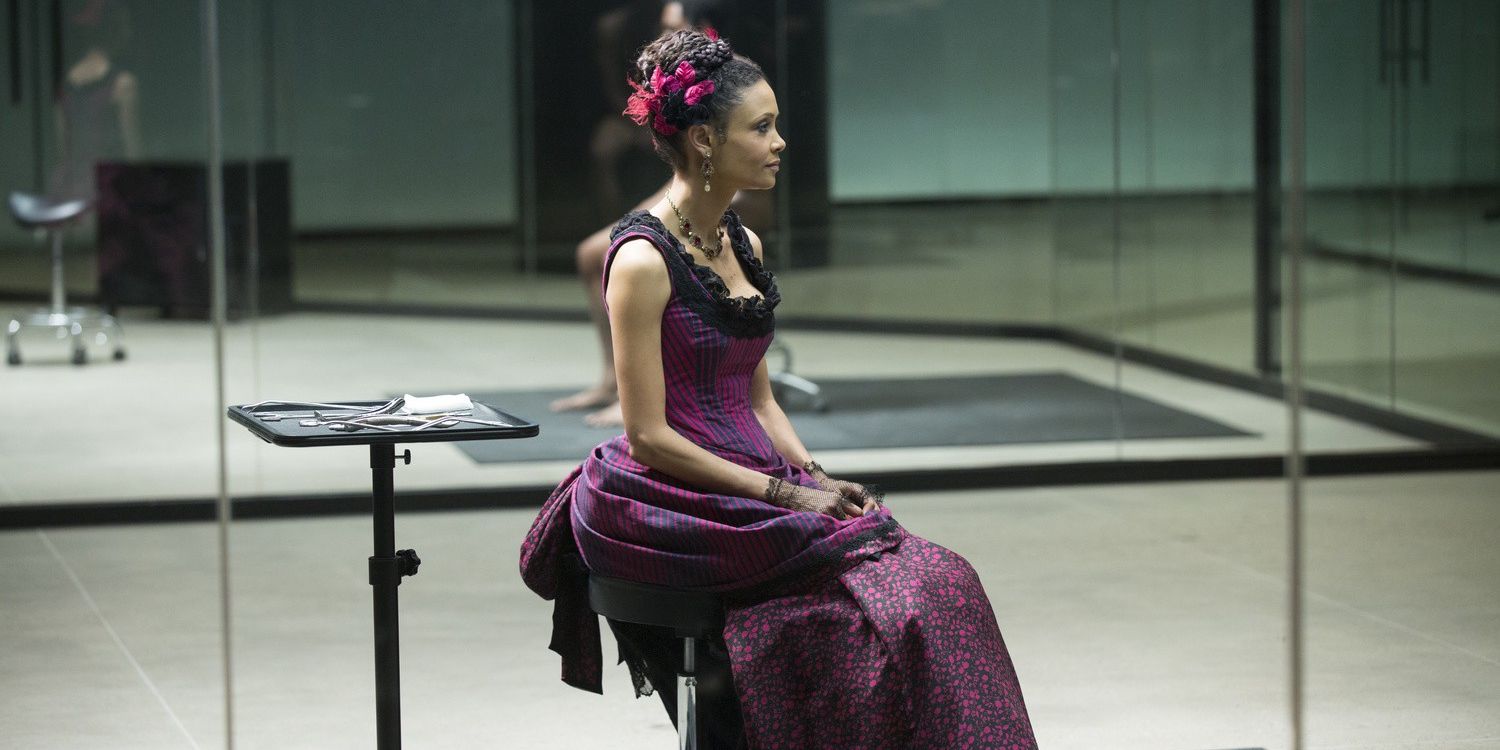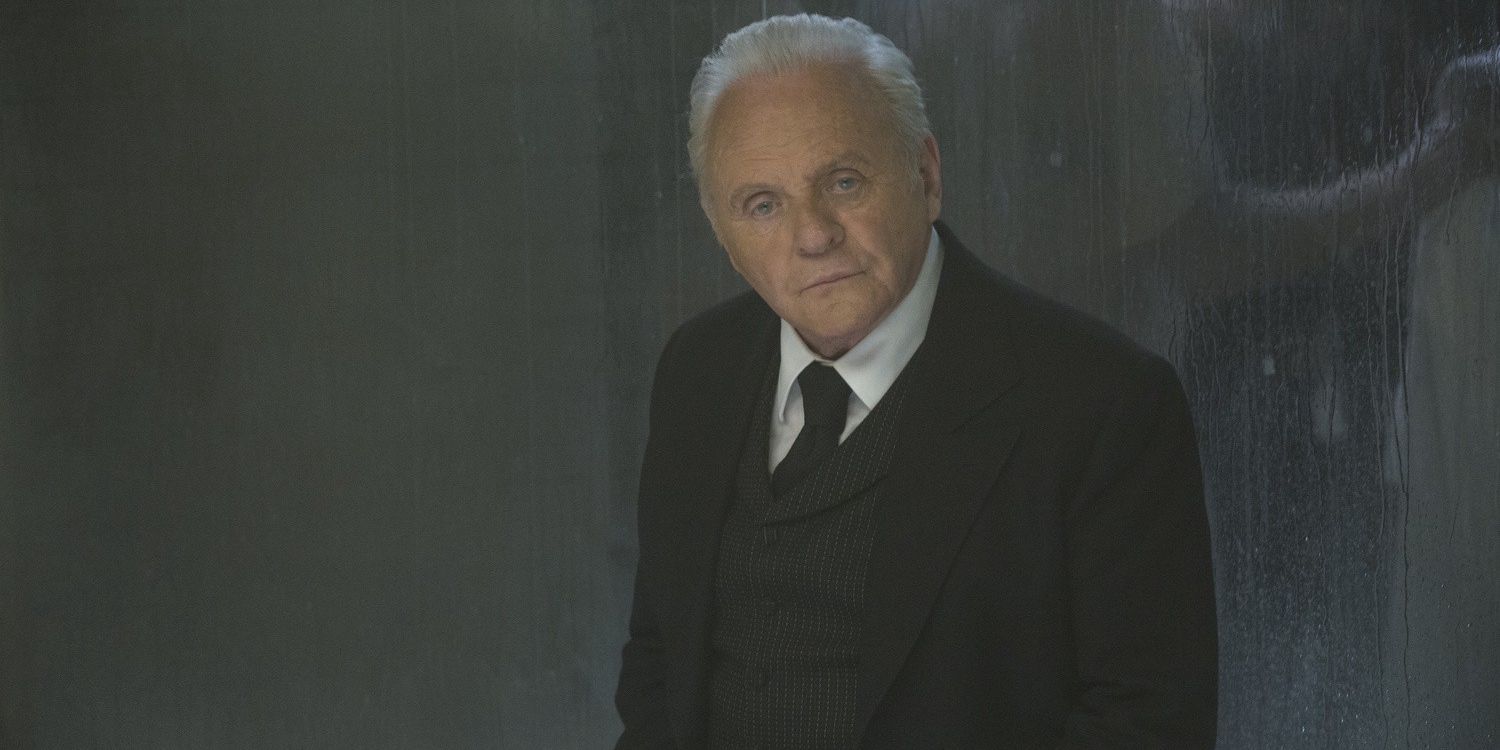Westworld has traveled a particularly winding road over the course of season 1. But while there are myriad questions about nearly every character, the nature of time, choice, and reality, one character arc has stood out amongst the pack, particularly because of its straightforwardness. Over the last few episodes, Maeve's ascension from sassy saloon madam to presumably sentient sassy saloon madam with a hankerin' to escape the confines of both her prescribed loop and the park itself has presented the show with perhaps its most significantly emotional plotline.
Whereas most characters are off chasing Wyatt, Arnold, or the maze, Maeve has a clear set of goals that seem nearly within her scalpel-wielding grasp, goals that may very well have enormous ramifications for her story and the story of Westworld moving forward. Moreover, it's clear to see how she might actually go about achieving that which she desires – a far cry from recent wanderings of Dolores and her seemingly reluctant beau William, or the Man in Black's not-really-surprising backstory as a potentially misunderstood workaholic with more than his fair share of domestic squabbles.
As such, with a title like 'The Well-Tempered Clavier', it seems Westworld might be hinting at a storyline focused on everyone's favorite madam, as the series draws yet another line between the player piano bringing the park some of the most obvious musical selections possible and current Host with the most. In recent weeks, Maeve has become a finely tuned instrument, on capable of playing a number of different tunes, thanks to the bumbling efforts of Felix and Sylvester. Seemingly no longer beholden to her prescribed loops, Maeve can step out of her fugue state and directly influence the loops of others. Sometimes that means slashing the throat of New Clementine, and sometimes that means slashing the throat of an uppity Sylvester. Hopefully, as Maeve moves closer to her goal, her interpersonal communication skills will move past watching the arc of someone else's arterial spray to something that suggests a bit more nuance.
But Westworld had another surprise up its sleeve with regard to the revelation that Bernard was a creation of Dr. Ford's. As it turns out, the all-too brief exploration of Bernard's revelation did indeed hint at something greater. Bernard isn't just a tragic android caught in a loop of Ford's creation, he's Arnold, the reimagined Arnold, not the one killed by Dolores all those years ago. And now, Bernarnold is hell bent on contacting all the sentient hosts.
Why Did Ford Build Bernarnold?
There is something sentimental about what Ford wants out of his creation of Bernard that undercuts his recent maneuverings that suggest he is otherwise and unrepentant monster. For as unsubtle as show as Westworld has demonstrated itself to be, and for how unsentimental it has been about its characters (Theresa for example, and maybe Elsie) the realization that Ford has created an entire being to recover a lost sense of partnership – even one that was seemingly as contentious as the one he had with Arnold – is the show's first real sign that its human characters are driven by something other than promise of enormous compensation or their own ego.
At the same time, though, there is overwhelming evidence that Dr. Ford is prone to hitting the reset button – no matter how violent the repercussions of that reset may be. His new narrative is tearing through Westworld in an effort to rebuild the park and rebuild the park's experience into something completely new. Perhaps this is the true reason why he chose to recreate his partner (and subsequently sentence him to death): It was Ford's way of starting over the way he wanted to, and now he's just pushed that button again.
Is the World Outside Westworld So Bad the Park is a Vacation?
Is Ford's creation a response to the world outside the park or is it simply a chance for him to play God? Two of the biggest questions about the show are: What's going on in the real world and why would anyone want to come to Westworld as a vacation? The price tag alone makes the trip prohibitive for all but the wealthiest of clientele – unless they offer a coupon day, like the bloodsucking lawyer from Jurassic Park suggested that sure-to-be-wallet-busting theme park do to lure lower-income families – so what's the appeal? Is it the opportunity to learn who you really are? Or do most guests just want, as Charlotte Hale puts it, "a warm body to shoot or to f***"? Are people in the real world really that lost on a personal level and really that hard up for a little human interaction?
The show has dropped some hints as to what it's like beyond the park's walls (or atmosphere, if you subscribe to that theory), like the eradication of disease. But as Ford mentions, "We destroyed and subjugated our world and when we eventually ran out of creatures to dominate we built this beautiful place." What does that tell us about the conditions outside the park? Is the planet devoid of life beyond the humans that subjugated it? Is that why Westworld manufactures its own horses, cattle, and as Logan points out, squab? Or is Ford merely talking about human nature and its insatiable need for more?
At any rate, with Maeve working her way out maybe we'll get a chance to see what's beyond the park in the season finale.
-
Westworld concludes season 1 next week with 'The Bicameral Mind' @9pm on HBO.
Photos: John P. Johnson/HBO



